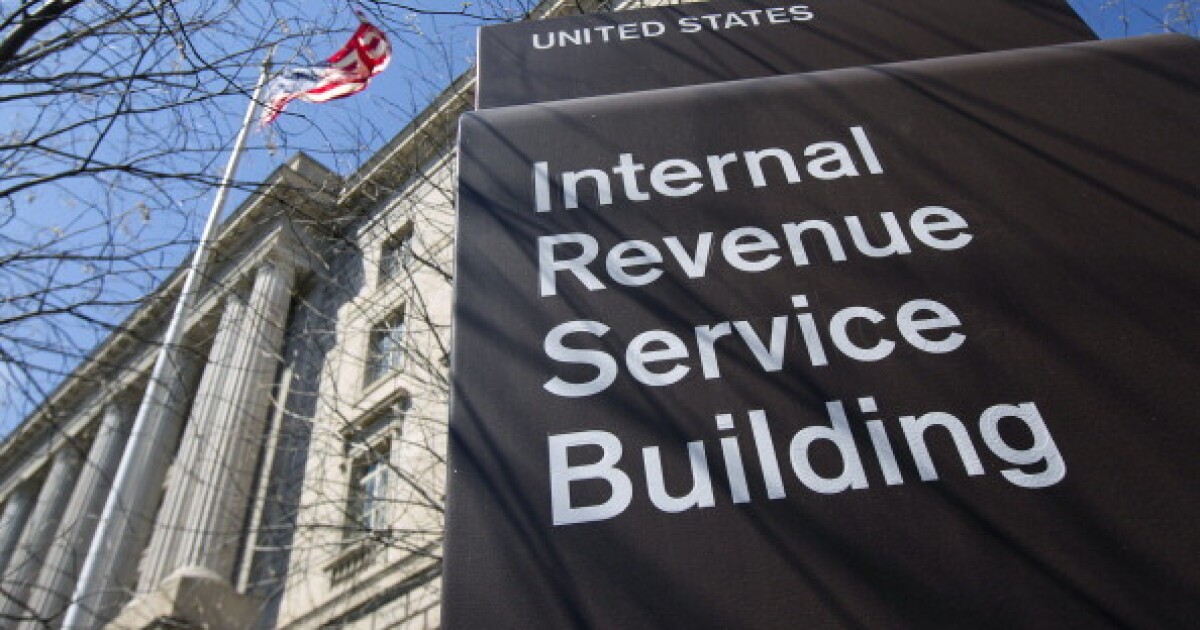Amid some mixed signals about the possibility of higher taxes for some wealthy households, new research is shedding light on the many potential options available to policymakers.
President Donald Trump and his Republican allies in control of Congress face a year-end deadline to extend the expiring provisions of the Tax Cuts and Jobs Act. But the complexity of passing major tax legislation is taking the debate in some surprising directions as lawmakers haggle over some means of paying for the price tag of more than $4 trillion. For instance, news reports indicate that members of the administration and GOP lawmakers are considering a new top tax bracket above the reduced ones put in place by law.
To be sure, the bill has yet to take shape and other administrative actions and rhetoric from Republican lawmakers suggest there is little possibility that the legislation may include any changes to the brackets, the “buy, borrow and die” strategy or some form of a wealth tax.
The size of the limitation on the deduction for state and local taxes has received much more attention. However, recent studies by the The Budget Lab at Yale and researchers from the University of Nevada, Las Vegas offered a lens into the wealth of policies available to reduce the cost and budget deficit impact of the tax legislation.
“I think Congress should sharply limit the three different types of tax breaks for capital gains for the wealthy,” said Steve Wamhoff, the federal policy director with the Institute on Taxation and Economic Policy, a nonprofit, nonpartisan research organization that seeks “to put forth a vision of a more racially and economically equitable tax system at all levels of government.”
“First is the ability to defer income tax on capital gains until assets are sold and the gains are “realized,” he continued in an email. “Second is the exemption of unrealized capital gains on assets passed on to an heir. Third, even when gains are realized, they are taxed at lower rates than other types of income. All three of these should be addressed, at least for the rich, as was proposed by former President Biden.”
READ MORE: Clients aren’t likely to face estate taxes. But they still need a plan
Understanding the strategy
The so-called buy, borrow and die strategy revolves around how capital gains are untaxed until they are realized into a household’s wealth and the fact that there is a “step up” in basis for inherited assets that shields the beneficiary from any levies based on their appreciation in value during the deceased person’s lifetime, according to the study last month by the Budget Lab.
“Together, these features create a simple tax strategy for those looking to maximize the amount of wealth passed onto their children: hold onto low-basis assets until death and finance any consumption needs through other income sources,” the study said. “One such income source is borrowing against the value of appreciated assets. Loan proceeds are traditionally nontaxable, as they represent a temporary transfer of cash that will be repaid, not income per se. But in the case of someone borrowing against appreciated assets, loan proceeds function identically to cash from an asset sale — except without the associated tax liability. This is the ‘buy-borrow-die’ strategy, which results in appreciation escaping tax entirely.”
READ MORE: Gimme (tax) shelter: The unlimited annuity shielding ultrawealthy clients
Policy ideas
Three ideas that have emerged as a method of reducing the tax benefits for wealthy households could generate between $102 billion and $147 billion in new revenue over the next decade, according to the study’s calculations. Those reforms would respectively create a taxable event for some households’ loans, obligate certain taxpayers to prepay duties on capital gains when they borrow or impose a new flat levy on a small portion of lending activities.
Importantly, the policy suggestions “reflect inherent tensions in reforming the tax treatment of borrowing,” and raise “important dimensions along which policymakers must trade off potential goals,” the study said. The latter idea for a new flat tax on certain loans, for example, would “leave the tax preference in place for some while also newly taxing others who are borrowing for legitimate non-tax reasons,” according to the study. At the same time, each of the policies could broaden the base of taxpayers by eliminating what critics see as a loophole in the rules.
“Beyond raising revenue progressively, these reforms aim to address a fundamental distortion in the tax code: the implicit preference for borrowing over realizing capital gains,” the study said. “By assessing a tax on borrowing against appreciated assets, each reform would reduce the current-law tax advantage for financing consumption through debt rather than asset sales.”
To Wamhoff, the proposals “would absolutely be a step in the right direction,” in terms of “making our tax code fair and raising enough revenue to fund public investments,” he said.
“I happen to think that very wealthy people should pay income tax on their unrealized capital gains more broadly each year, not just to the extent that they are borrowing, and this proposal would get at only a fraction of that because the borrowing is probably only a small percentage of their unrealized gains,” Wamhoff said. “But from the perspective of tax fairness you could say these proposals address some of the most egregious ways that wealthy people take advantage of the tax deferral for unrealized capital gains. These are cases where you cannot say there is an administrative reason or practical reason for these wealthy people to continue deferring income tax on their unrealized gains.”
READ MORE: Borrowing from investment profits without incurring capital gains taxes
State-level wealth taxes
Another type of policy idea would focus on taxing wealth that has risen to some level above a threshold of assets or simply impose new duties based on a household’s net worth. Five states have already adopted laws that are doing so, with seven others considering legislation to start a wealth tax, according to a January study in the “Tax Notes State” journal by Francine Lipman and Steven Reinecker of UNLV’s William S. Boyd School of Law.
Citing a Fed estimate that the top 10% of the richest households in the country have two-thirds of the country’s wealth, they point out that states could generate more than $1 trillion per year in tax revenue with a 1% surcharge on those taxpayers. The researchers see little chance of any federal action, though.
“Given the results of the November 2024 election, the prospect of a federal wealth tax anytime soon becomes remote,” Lipman and Reinecker wrote. “Republicans now control both the Senate and the House of Representatives, where such a proposal would likely be dead on arrival. Also, with the reelection of President Donald Trump, the chances are even lower. Trump campaigned on tax cuts, not tax increases, so it is unlikely he would sign any wealth tax bill if it did reach his desk.
As well as the unlikelihood of Congress passing a wealth tax bill, the recent Supreme Court case Moore v. U.S. calls into question whether a wealth tax would even be constitutional.”
After explaining the debates in California, Massachusetts, Minnesota, New York, Washington, Connecticut, Hawaii, Illinois, Maryland, Nevada, Pennsylvania and Vermont and efforts to block the idea entirely in Louisiana, West Virginia and Texas, the researchers suggested that “the path ahead for wealth taxes may be similar to states legalizing and taxing cannabis.” In other words, a few states legalized marijuana in some form, but then many more followed suit up to today’s total of two dozen plus the District of Columbia after “it was shown to be fiscally lucrative and systematically successful,” Lipman and Reinecker wrote.
“The five states that have passed a wealth tax have shown success, with more revenue generated and no apparent exodus of wealthy residents,” they wrote. “The willingness or unwillingness to consider wealth taxes at the state level generally seems to be along political party lines. This divide is so deep that even households in ‘red’ states that would benefit from high-net-worth taxpayers paying more in tax revenue often vote against wealth taxes.”


 Economics1 week ago
Economics1 week ago
 Personal Finance7 days ago
Personal Finance7 days ago
 Accounting1 week ago
Accounting1 week ago
 Economics1 week ago
Economics1 week ago
 Blog Post4 days ago
Blog Post4 days ago
 Economics1 week ago
Economics1 week ago
 Economics5 days ago
Economics5 days ago
 Personal Finance7 days ago
Personal Finance7 days ago












